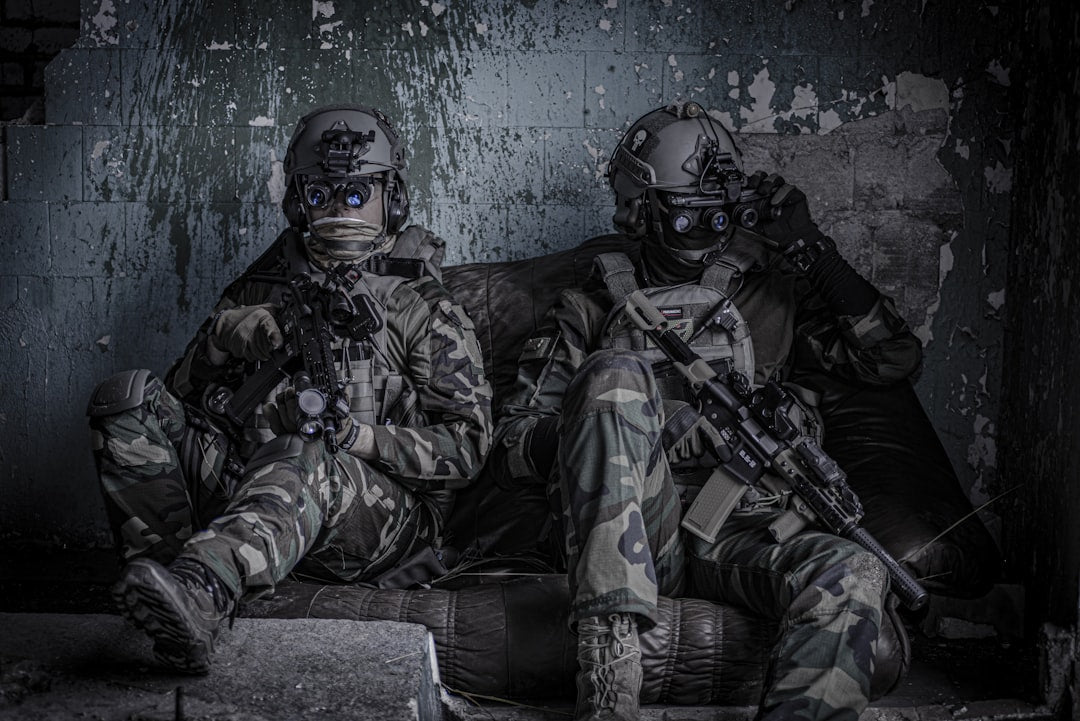
Facing the Transition: Addressing Reintegration Challenges for Military Veterans
Share
The process of reintegration into civilian life can be a daunting journey for many military veterans, including those who have served in the esteemed 10th Mountain Division and other units of the US Army. As these brave individuals return from service, they are confronted with various challenges that can impact their mental, emotional, and physical well-being. In this article, we will explore the common reintegration challenges faced by veterans, highlighting the importance of support systems and resources available through communities like Pando Commando.
Understanding the Reintegration Process
Reintegration encompasses the transition from military to civilian life. It is a multi-faceted journey that can be fraught with difficulties, particularly for those who have completed active duty. The challenges can vary depending on individual experiences, but some common setbacks often include:
- Social Isolation: Many veterans struggle to reconnect with family, friends, and communities after their service.
- Mental Health Issues: Conditions such as PTSD are prevalent among veterans and can hinder reintegration.
- Employment Challenges: Transitioning to a civilian career can pose difficulties, especially for those who have held military roles for an extended period.
- Adjusting to a Different Pace of Life: Veterans often find it challenging to adapt to the less structured lifestyle of civilian life.
The Impact of Combat Experiences
Combat experiences can particularly influence a veteran's adjustment to civilian life. For those who served in units like the 10th Mountain Division, the memories of battlefield engagements can weigh heavily, potentially leading to long-term psychological scars. The psychological impact of combat should never be diminished; rather, it necessitates understanding, empathy, and support from both society and the veterans themselves.
PTSD and Its Effects
Post-Traumatic Stress Disorder (PTSD) is one of the most significant challenges veterans face upon returning from service. Symptoms can include flashbacks, severe anxiety, and uncontrollable thoughts about the traumatic event, impacting their day-to-day life. Recognizing these symptoms is crucial for fostering an environment conducive to healing.
Building a Support Network
A robust support network can make a significant difference in a veteran's successful reintegration. Connecting with others who have faced similar experiences can provide reassurance and understanding. Here are some ideas for building such a network:
- Engaging with Veteran Organizations: Organizations dedicated to veterans' wellbeing can offer resources, counseling, and a sense of camaraderie.
- Connecting with Local Communities: Participation in community events can help veterans re-establish social connections.
- Utilizing Online Forums: Platforms like Pando Commando create online spaces for veterans to share experiences and find support.
Employment Opportunities and Career Development
Securing employment is a pressing concern for many veterans. The skills acquired during service often do not directly translate to civilian job markets, which can lead to frustration and uncertainty. Below are several avenues veterans can explore for career opportunities:
Translating Military Skills to Civilian Workforce
Veterans possess numerous transferable skills that are often overlooked by potential employers. Skills such as leadership, problem-solving, and discipline are invaluable in civilian roles. Here are a few ways veterans can better present their skills to hiring managers:
- Leveraging VA Resources: The Department of Veterans Affairs offers various training programs and job placement services.
- Networking: Engaging with former service members who successfully transitioned can provide insights and opportunities.
- Tailoring Resumes: Veterans should focus on framing military experience in a way that aligns with civilian job descriptions.
Education and Further Training
Pursuing further education can also play a pivotal role in easing the transition into the workforce. Many U.S. Army veterans qualify for educational benefits that can offset the cost of further training or college. This can open up new career paths and lead to personal growth and development.
Addressing Health and Wellness
The journey of reintegration extends beyond just securing employment; it also encompasses the physical and mental health of veterans. Prioritizing well-being is essential in helping them adjust to civilian life. Here are some considerations:
Mental Health Services
Accessing mental health services is vital for veterans dealing with issues such as PTSD or depression. Organizations like Pando Commando play an essential role in connecting veterans with mental health resources. Therapy, support groups, and counseling can provide relief and assistance in managing mental health challenges.
Physical Fitness
Maintaining physical fitness can substantially enhance the overall well-being of veterans. Regular exercise has been shown to improve mood and reduce anxiety, which are critical aspects of reintegration. Engaging in group workouts or classes tailored for veterans can foster a sense of community while promoting health.
Creating a Sense of Belonging
Reestablishing a sense of belonging is one of the most significant hurdles for veterans. After years of military service, it can be difficult to transition back to civilian life where relationships and social structures differ markedly. Here are a few strategies to help create that sense of belonging:
- Volunteering: Giving back to the community can foster a sense of purpose and connection.
- Participating in Local Events: Engagement in community gatherings or veteran-centric events can help veterans meet new people and forge friendships.
- Joining Clubs or Organizations: Finding groups that align with personal interests can reintroduce the sense of camaraderie that veterans are accustomed to.
Seeking Professional Help When Necessary
Sometimes, the challenges faced during reintegration are too overwhelming to handle alone. Seeking professional help from psychologists, counselors, or veteran support organizations is not only advisable but also a sign of strength. Accessing these resources can provide tailored support to help navigate the unique circumstances each veteran faces as they readjust to civilian life.
Empowering Veterans Through Advocacy
Advocacy is an essential aspect of addressing the challenges faced by veterans. Communities and organizations must work together to raise awareness about veteran issues and ensure access to vital resources. Engaging in legislative advocacy can influence policies that support veteran reintegration.
Creating Supportive Policies
Legislation and policies can pave the way for a smoother transition. Initiatives that focus on job training, mental health services, and educational benefits for veterans are critical. By advocating for these policies, communities can create a more supportive environment for those who have served.
Celebrating Our Heroes: The Importance of Recognition
Recognizing the sacrifices and contributions of our military veterans is a fundamental part of their reintegration journey. Celebrations, commemorations, and public acknowledgments can instill pride and help veterans feel valued within their communities.
Encouraging Public Awareness Campaigns
Awareness campaigns can help the general public understand the experiences of veterans and the challenges they face during reintegration. These campaigns can foster empathy and support, leading to a more understanding society.
Building a Future of Resilience
The road to reintegration is filled with challenges, but it can also be a path of growth and renewal. By using the resources available through organizations like Pando Commando and engaging with communities, veterans can navigate their transition into civilian life more effectively. The unique experiences and skills gained through military service can serve as a foundation for a fulfilling life beyond the uniform. With the right support, the courageous individuals who served in the US Army can overcome adversity and thrive in their new roles as civilians. Let’s work together in ensuring that our veterans have the tools needed to build a resilient and hopeful future.
Discover the amazing creations of a fellow Shopify store owner by visiting their online store. Click here to explore. Keep in mind that this is a promotional link, and we are not liable for the content of the linked store.


